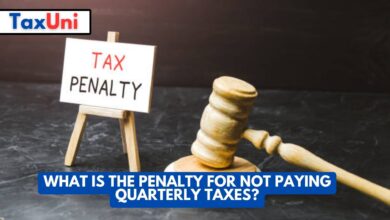Rhode Island Pass-Through Entity Tax
Pass-through entity taxes are an effort by some states to work around the $10,000 limit on state and local tax (SALT) itemized deductions. Rhode Island is one of the most recent states to adopt such a tax, joining Connecticut, Wisconsin, and Oklahoma.

In Rhode Island, a pass-through entity tax is an annual state tax paid at the entity level. It reduces the entity’s federal income and is shown on Form RI-1099E. The individual owners receive a credit for the amount of tax paid on their personal returns. The tax is only imposed on certain types of entities, such as partnerships and S corporations. The tax is based on the percentage of ownership of the entity and other state rules.
Rhode Island has a pass-through entity tax (PTE) of 5.99%. This tax is levied on the income of pass-through entities, such as sole proprietorships, partnerships, S corporations, and LLCs. In the wake of 2017’s federal tax reform, a number of states have created ways for owners of pass-through entities to deduct their state taxes from their federal income tax. Connecticut and Wisconsin instituted mandatory pass-through entity taxes in 2018, while Louisiana, Oklahoma, and now Rhode Island have enacted elective pass-through entity taxes as a workaround for the $10,000 cap on the state and local tax (SALT) deduction that was imposed by Congress.
If a pass-through entity chooses to pay the new entity-level tax, it must file an election by Sept. 16. The division has released guidance clarifying how the election should be filed and how it will affect resident and nonresident owners. The guidance also addresses the impact of federal adjustments on an owner’s Rhode Island taxable income. The guidance is available at the Division of Taxation’s website.

How Are LLCs Taxed in Rhode Island?
An LLC is a popular business structure for many reasons, including the personal liability protection it offers. However, it can also be taxed differently from other entities. The type of taxation an LLC is subject to depends on how it is classified by the IRS and its members. A single-member LLC is taxed as a sole proprietorship, while a multi-member LLC is taxed as either an S or C corporation. In addition to this, the state of Rhode Island imposes additional taxes on certain types of businesses.
For example, it charges sales and use tax on tangible products. This is typically collected at the time of purchase and paid to the state Division of Taxation. It also imposes a state income tax on all its resident and nonresident owners. To avoid this, an LLC can choose to be taxed as a corporation by filing an extra form with the IRS.
If an LLC has employees, it must pay state employer taxes. These taxes are reported on a Franchise Tax Report submitted to the Rhode Island Department of Revenue. In addition, an LLC with employees must have a Federal Tax Identification Number (EIN), which is used to identify the company for tax purposes. This number is also required if the LLC wants to open a bank account or get a credit card.

Rhode Island Pass-through Taxation
Rhode Island recently enacted a pass-through entity level tax, effective for tax years beginning on or after January 1, 2019. The new policy is an opt-in program that may reduce the amount of state income taxes paid by certain business entities. However, it may not be the right solution for all businesses. In addition, the law does not address revocation of the election.
Under this new law, eligible pass-through entities can voluntarily elect to pay a state tax at the entity level of 5.99%. Individual owners of the electing entity can claim a credit on their RI personal income tax return for their pro rata share of the tax paid by the entity. This will offset the federal limitation on state and local tax deductions.
Unlike the other states that have passed pass through entity laws, Rhode Island’s law is unique in that it is a one-time tax on entities. Those who make the election must file Form RI-PTE, Pass-through Entity Level Tax Return, by April 15 to be able to deduct the entity-level tax in 2019. If the tax is not deductible, an estimated payment should be made using Form RI-1096-PT.
If a pass-through entity does not make its estimated tax payment on time, interest will be assessed at the rate of 1.5% per month or fraction of a month to a maximum of 25% of the unpaid tax. In addition, late filing penalties may apply.





